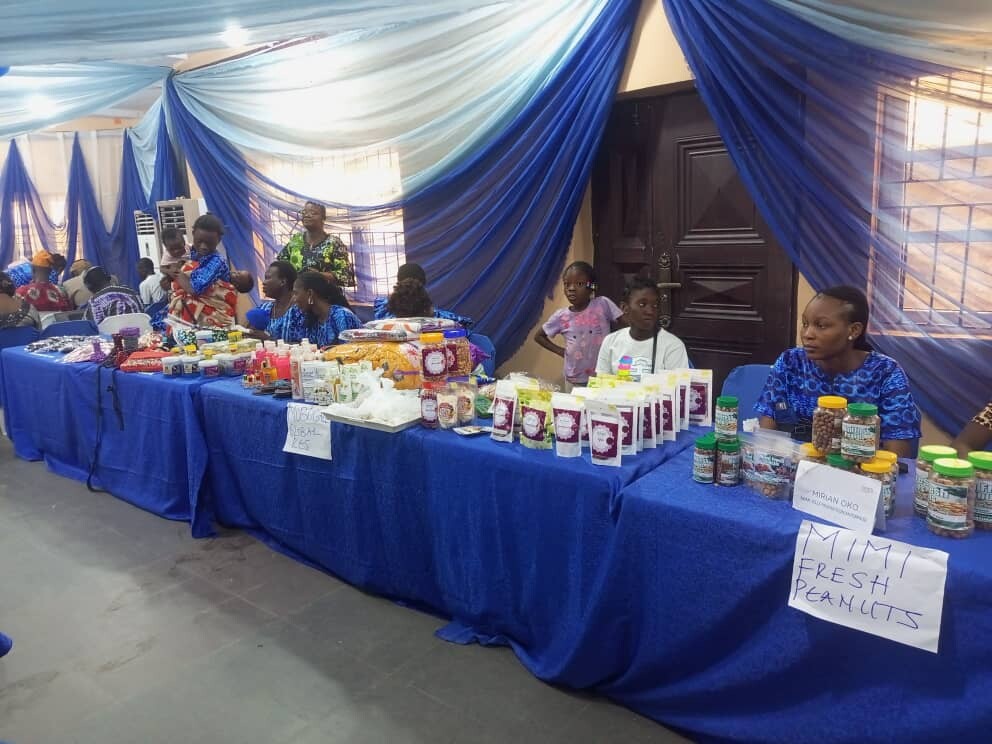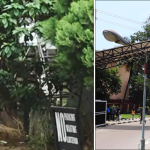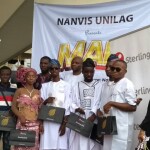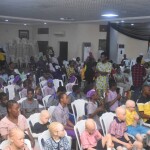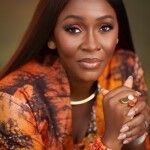Their experience of neglect and exclusion notwithstanding, these women are leading the charge for inclusive livelihood opportunities in Nigeria's largest commercial nerve centre through a parade of products and productivity, writes Gbenga Ogundare
At the inaugural presentation of cheques to beneficiaries of the Lagos Market Trader Money programme in February 2024, Bukola Ogunsanya, Ruth Komolafe, Kudirat Amuda and other female entrepreneurs in the women wing of the Nigeria Association of the Blind were visibly absent at the LTV Blueroof Hall where Governor Sanwo-Olu flagged off the N750 million financial intervention scheme.
Although Governor Sanwo-Olu said his administration designed the initiative to empower some 15,000 small-scale traders in the state transform the food systems and stimulate economic activities in various food markets, the vision-impaired entrepreneurs still wonder why their community was excluded from the grant selection process.
Three months into their experience of exclusion, however, the blind women have shined the light on the untapped potential of women with disabilities in Nigeria's largest commercial nerve centre. The multipurpose hall of Odi Olowo Local Council Development Area became a beacon of empowerment on May 18th as these entrepreneurs paraded their products and productivity, aiming to redefine perceptions and carve out a space for themselves in an economy that often overlooks their capabilities.
Bukola Ogunsanya, a baker and women leader of the Nigeria Association of the Blind, articulated the driving force behind the groundbreaking exhibition: "The idea behind the exhibition is to showcase our products and services, to counter the narrative that blind women are useless. It's about building a bridge between us and our customers, demolishing stereotypes brick by brick."
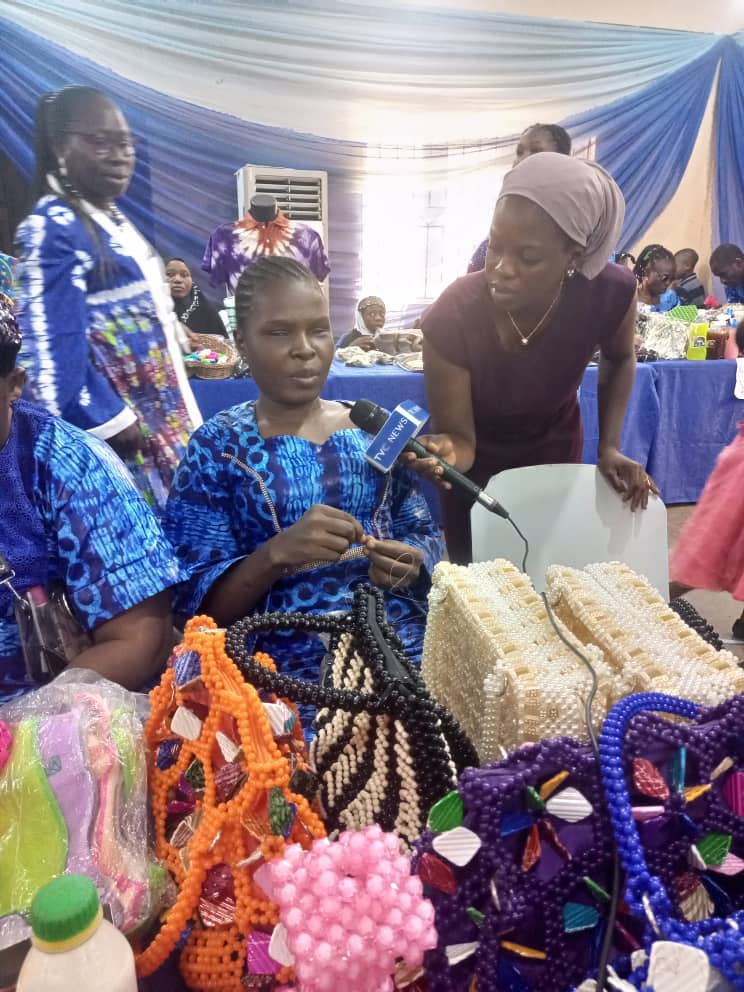
The path to entrepreneurship and livelihood navigation for the women is often riddled with obstacles. Start-up capital remains elusive, while securing customers proves to be a daunting challenge in a society where stigma orientation against people with disabilities persists. In addition, government support, which should serve as a catalyst for their economic empowerment, is glaringly absent.
In the words of Ogunsanya, "Government programs are tailored to train only, with little to no focus on mentoring or providing market access. Additionally, these programs often lack accessibility for visually impaired individuals, further widening the gap."
The solution, these entrepreneurs propose, lies in meaningful engagement from both private and governmental sectors. They advocate for government contracts to supply their products to both private organizations and government offices, emphasising the importance of inclusivity in procurement practices.
Furthermore, the women call for policy reforms that would ease the burdens of business registration and regulatory compliance, including exemptions from fees and levies which often exert financial strain on their businesses.
"At its core, this exhibition is not just about showcasing products; it's a rallying cry for inclusivity, economic empowerment, and systemic change,' explained Kudirat Amuda, a UNILAG graduate of History and Strategic Studies and Exhibition Committee Chairperson. "More importantly, it underscores the transformative power of entrepreneurship in dismantling barriers and fostering a more equitable society,' she told ER.
While the journey of blind women entrepreneurs in Lagos underlines the uphill battle against societal barriers, public and private institutions in other climes are stepping up to support PWDs in their entrepreneurial endeavors. In India, for instance, the National Handicapped Finance and Development Corporation (NHFDC) offers financial assistance, skill development programs, and entrepreneurship training specifically tailored to empower disabled individuals, including women, to start and sustain their own ventures. Priya Patel, a deaf entrepreneur from Mumbai, is one of the success stories that has emerged from this inclusive entrepreneurship policy. Priya found her voice in the world of fashion design leveraging on government-backed vocational training and microfinance initiatives. Her boutique now serves as a symbol of hope for countless Indian women with disabilities disproportionately disadvantaged by ableism.
In Toronto, Sarah Ahmed, a visually impaired entrepreneur, is breaking barriers in the tech industry. With support from government grants and assistive technology subsidies, Sarah founded a software development company specializing in accessible solutions. Her story epitomizes the power of innovation fueled by inclusivity, where disability is not a hindrance but a catalyst for change.
In contrast, the Nigerian government's lack of meaningful support for entrepreneurs with disabilities highlights a missed opportunity to tap into the immense potential of this population.
Therefore, as Lagos basks in the glow of innovation and resilience beaming from these blind women entrepreneurs, implementing policies that prioritise inclusivity and support for disabled entrepreneurs as in other climes might eventually help Nigeria to unlock a wealth of talent and creativity that will drive economic growth and social progress soon.

